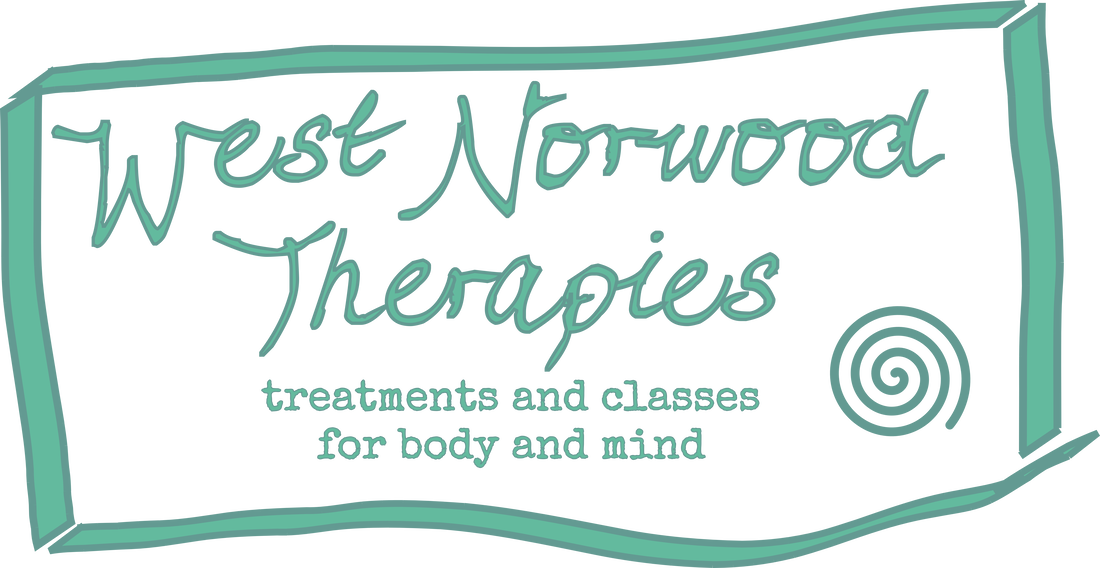|
As Mihaly expands his treatment repertoire to include Dissolve therapy, an empowering method for 'dissolving' tension and stress in the body, he is offering 10 clients (and colleagues if we're lucky;-)) treatments for £20 - more info on this deal below. Please contact Mihaly directly interested, find his contact details here 🌟 Experience Bliss with Dissolve Therapy for just £20! 🌟 🌿 Say goodbye to tension and hello to tranquillity with a new healing modality! 🌿 Discover Dissolve Therapy, where hands-on techniques melt away stress and invite serenity into your body and mind. Let me guide you through releasing tension pockets and embracing spaciousness within. 🔍 These sessions offer you the chance to cultivate a new response to daily stressors: finding space and release within. 🔍 In Chinese medicine, stagnation and ‘stuckness’ are seen as the root of suffering, but Dissolve Therapy clears those internal dams, restoring equilibrium and bliss. And the best part? You remain fully clothed throughout the session! This limited offer is for 10 lucky individuals to enjoy 2-3 sessions each at an incredible price of £20 per session. Don't miss out on this massive discount from the usual £100 rate! 🎉 Why the amazing deal? 🎉 As an established Acupuncturist and Massage therapist, I've discovered the transformative power of Dissolve Therapy. While I'm still training to become an official Dissolve Therapist, your support helps me grow, and your feedback fuels our journey together towards wellness. Please leave a review at the end. By supporting me in completing my training, you are also helping your family, friends and neighbours. 🙏 Ready to dissolve tension and embrace tranquility? Book your session now! ✨ More information from the source: https://www.dissolvetherapy.com/ Please contact Mihaly directly if you are interested, find his contact details here
1 Comment
Acupuncturist Mihaly Rosta shares his success in treating a client with constipation with some simple acupuncture points. I thought to share a few stories from my clinic so you can have a better understanding of what Acupuncture can help with. As well as to provide a gentle introduction to how it works. Relief for constipation and other bowel issues is a remarkable and frequent outcome of such treatments. Over the years I am starting to figure out that the body is truly amazing. It really is a wonderful ‘machinery’ that often needs only a little nudge in order to recover. As long as one has sufficient vital substances – Blood, Qi and Essence (talk about those in a later post) – it will recover rather quickly. When it comes to treating bowel issues such as constipation, diarrhoea, inflammation and such Acupuncture can have a quick reliving effect – whilst it may take longer to re-establish proper internal harmony in case of chronic conditions.
One of my clients came to me recently complaining about the inability to empty their bowels properly for almost a week. Although their main complaint was different, something like this can often be incorporated into the treatment. I used a combination of 2 points located on the Stomach channel, whilst other points were used to support the underlying conditions. The acu-point, Stomach 37 was needled and gently stimulated. This is a point which has a strong effect on the bowels through the connection of the digestive organs of the Stomach and the Large Intestine, which is mainly responsible for the appropriate elimination and further absorption of nutrients. As you can read in the other article -click on the link above-, it is also a majorly useful point to generally assist IBS and it’s related symptoms. I also used acupressure on Stomach 25 which has been observed to have a very strong effect on the Intestines. Via the aforementioned connection, this point is able to strengthen and enhance the natural function of the Stomach and Spleen, which is responsible for the transportaion and transformation of nutrients. Although I worked fairly gently on these points, the client reported having a ‘big clear-out’ the same day. Of course, no 2 people have the exact same needs. The beauty of Chinese Medicine lies in its ability to show what needs to be done for the person in front of us in that given moment. Sometimes the body only needs a few gentle yet precise inputs in order to start making steps towards equilibrium. We have three practitioners at WNT who use acupuncture in their treatments. They each have distinct approaches so to help you decide who would best fit your needs we have asked them some questions about how they work and who they work with. There are 3 acupuncturists at WNT, please can you share a bit about your individual approach or style of acupuncture? 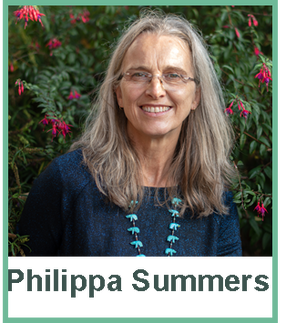 I practise East Asian Medicine (EAM), an umbrella term for many different styles which include my initial training in Traditional Chinese Medicine and 5 element acupuncture with subsequent courses in other styles including Master Tung, Channel Palpation and ear acupuncture, each with their own strengths. Training in TuiNa massage really changed how I work, and it was during that time that I started incorporating more hands on approaches to diagnosis and treatment. Broadly, EAM can be used to focus internally on physiology in a holistic way looking at how the different systems interact and impact on a physical, mental and emotional level. It can also be used to look at the body in a more structural way, focussed on the musculoskeletal skeletal system, but still taking into account the background physiology that nourishes the muscles, bones, tendons, ligaments and joints. My training particularly in fertility and musculoskeletal acupuncture has incorporated more western concepts and diagnostic approaches, but EAM is at the heart of how I work.  My approach is to deepen and utilise the mind-body connection which is done by bringing my decade long Tai chi and meditation practice into the treatment room. Whether it is acupuncture or martial arts, we always aim to create a good flow in the body and mind, as stagnation or being stuck is seen as the root of suffering. So my treatments are often described as a calming flow between Acupuncture, massage and gentle guidance. Thus working on both the Body, Mind and Energy (QI) of the person.  I practice what is known as Dry Needling or Medical Acupuncture (DN/MA). This is an approach used to treat musculoskeletal problems. When I think it may be beneficial to use needling during a massage session I will discuss with the client first and use it in combination with soft tissue work (massage). I will massage the area first to detect where the needles are required and usually leave them in place for 20 minutes or longer if needed. I use DN/MA in approximately 50% of my treatments. I am foremost a massage therapist and I am aware that when people book a massage, that is what they want. I also respect that some clients have a fear of needles although I am happy to say I have introduced DN/MA to a number of clients over the years who have been converted when they feel the benefits of a needle versus my elbow! What kind of clients do you mostly treat?  I treat a wide variety of conditions but since qualifying most of my additional training has focussed on four main areas which in turn determines the type of clients I mostly treat:
So, I see a lot of women for gynae issues like painful periods, PMS, menopausal symptoms, through pregnancy right up to the birth and beyond and a very wide range of fertility issues. This may be support conceiving naturally or while going through ART procedures like IVF and FET, often with background diagnoses like endometriosis or PCOS. I also treat a lot of people with headaches, migraines, musculoskeletal conditions like sciatica, back and knee pain, often chronic recurrent conditions. I tend to refer athletes and sporty people with more acute conditions to Tessa. I have built up good peer support and referral networks in the key areas on which I focus and that is so important in getting help with more challenging cases and signposting clients in the right direction if I can’t help them.  Although I see people with a wide range of health complaints, the most frequent conditions that I treat (and have success with) are anxiety, stress, nerve related pain, sinusitis and digestive issues. I am also happy to say that I see a fairly equal amount of man and women (and everyone in-between). I am really happy to see that men reach out and attend to their mental health needs. 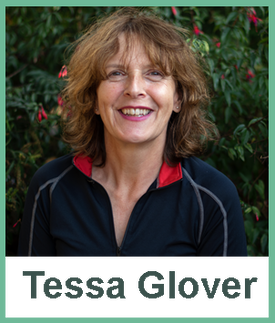 I use DN/MA on all types of clients. From those with migraines or neck/shoulder/back pain to muscle tears. From young semi-professional footballers with injuries to more mature clients to assist with pain relief and rehabilitation from many conditions including Osteoarthrititis and hip/knee replacements. Again I only treat with needles if the client is happy to. What do you enjoy about using acupuncture to work with clients?  I love how very different we all are and feeling a connection with people. Everyone brings their own personalities, strengths and struggles, and it feels vitally important to get a sense of each person and what treatment means to them in order to treat effectively. That spark of connection is so important whatever people are coming for. There is invariably an emotional element to some degree, sometimes a key focus, sometimes more in the background. Acupuncture with its holistic approach and focus on mind, body and spirit offers a versatile framework. It is so good at helping to achieve a sense of peace in our often hectic city lives, where that reset into more 'rest and digest' is a key element for healing. Whether people come with pain, with mental health struggles, wanting to start or grow a family or for another combination of reasons acupuncture offers a way to assess and address the physical and emotional together, and also to regulate the many complex interactions within our body as a whole. I like that approach, it makes sense to me to treat the body as the unified, interactive, self-regulating system and gently nudge it towards a more healthy balance.  I really enjoy seeing the change that I help to facilitate in my clients. It's amazing how people can leave behind pain and find more comfort within themselves. Love seeing people's attitudes and priorities change about their own health as that is what makes the "healing" sustainable. Oh and I must say that I love treating new things that I perhaps have never seen in person before. It's fascinating to see how the two of us can unravel what is the ongoing behind the labels of disease.  I enjoy seeing the positive results of DN/MA when used on my clients. It also gives me the freedom to multitask if there are a number of areas of the body I need to work on in one treatment. For example I can use needles in the neck and shoulders while using massage on the legs. DN/MA doesn't work for everyone but I've had some amazing results and responses from clients. I used one needle on a hamstring tear in one session and the client had no further pain. My favourite response to the suggestion of using DN/MA being "ooh needles, yeah. I can feel it whooshing through my shoulders, it's fantastic. Love it!" You can book online with Philippa, Mihaly (aka Mike) or Tessa or contact them directly if you would like any further information. NB: Sessions with Philippa or Mihaly begin with a 90minute session to allow for a longer consultation (sometimes on zoom) while with Tessa acupuncture needling is something that is incorporated into her regular sports massage treatments.
Acupuncturist Mihaly Rosta shares some information about the Chinese Medicine concept of 'dampness' in the body and factors that might cause and help this. Is diet just about what you eat? Sluggishness (especially) in the mornings; Heaviness of body and mind; Bloating; Loose, sticky stools; Swelling; Weight gain. These are only a few symptoms of Dampness in the body. Damp.. what?
Imagine a clear beautiful river gracefully flowing through a forest. Now what if this river is being filled with debrish? It slowly becomes cloggy and turn into dirty mud. The most common cause for this muddiness to develop in the body is improper DIET. Excessive intake of fried, greasy, raw food; as well as alcohol, sugar, dairy, and even meat may result in the symptoms described above. However before removing unhealthy, overly processed foods from the diet, it’s important to intorduce new, appropriate foods in your diet. On the picture you may see a simple stir-fry dish, perfect for lunch or even breakfast -accompanied by some soup or tea. Bitter and slightly pungent/aromatic food like kohlrabi and romain lettuce are excellent at transforming congealed body fluids. Add some radish and leeks in order to strengthen the Lungs (Metal/Autumn) and clear any damp/phlegm that may reside there. Kidney -especially Aduki- beans are great source of protein in this case. Complementing the dish I also used garlic, thyme and parsley to help clear excessive mucus. To make this dish more seasonal, add some water and cook it on low heat. In order to introduce the sour balancing flavour of autumn (Metal) you may finish your dishes by squeezing some lemon/lime juice over them. Making small changes in the diet is an excellent tool for becoming more healthy over time. However if an already developed illness (or any of the symptoms above) are present, acupuncture treatment may be especially beneficial in order to address those issues. Please note that we always advise patients to see a professional Acupuncturist in order to determine the accurate diagnoses, which allows us to make personalised recommendations. For any seriously health concerns please see your GP. #diet #damp #acupuncture #bloated #sluggish #autumn Acupuncturist and massage therapist Mihaly Rosta shares some interesting thoughts around the 'how' of our eating habits being as, if not more, important than the 'what'. ow important is it to have the right food on your plate?
I usually see a divide amongst my friends and clients when it comes to diet and food. Some people just eat for the joy of it, not caring much about if they eat a lot of carbs or meat. Whilst other people can be “almost” obsessive about what they eat. May that be superfoods, very specific vegetables and meat, etc. So what is the correct attitude to diet? Well, I of course could not give a simple answer to such an important question. Especially as I am not a dietician. However when it comes to Chinese medicine, we always strife for balance. Walking the middle path. Sure, it is important to have a varied diet -according to both food energetics, colours, food groups- but I find it much more important to look at how people eat and digest. In my experience, our mental health and eating habits combined has a much stronger effect on our digestion and general health than the types of food we eat. Do not get me wrong, I am not saying that we should all eat white bread, milk and sugar 3 times a day. I am referring to the fact that if you have a varied intake of vegetables, fruits and meats/nuts, you should not worry too much about whether it is organic or not, or how many superfoods and brown rice you include in your diet. What is important then? 1. Structure and rythmn It is generally important to follow a rythmn in our daily life. Structuring our days around our meals and sleep can provide with a healthy l. So we priorities ourselves, our nourishment amongst other responsibilities. 2. Rest Taking breaks between meals (3-4 hours) gives our digestive system a rest, as opposed to continuous snacking which will overwork our Spleen and Stomach. 3. Focus /mindfulness Eating should be about the food and our nourishment. The taste, texture, colour, smell of our food should be in the focus of our mind when we eat. Not TV, Netflix, news, daily tasks or plans for the week. Let’s do ourselves a favour and eat mindfully. Just when we decide on the food we eat, we should apply the same mindfulness during our time of nourishment. 4. 2/3 There is a Chinese saying that you should only fill your belly 2/3 of the way, so there is space for Qi to do the digestion. Overeating is overtaxing on our digestive system. Finding the correct amount of food that does not leave us hungry, but also doesn’t makes us sleepy is essential. 5. Fluids It is important to drink plenty of fluids during the day, however it is best to avoid drinking with our meal. If you have a weak digestion, you may find it beneficial to drink digestives 20 minutes prior to your meals. Or if your meal seems to settle in heavy (lots of fats/oils) you may find drinking a (half) shot of clear spirit (I recommend Bison vodka for flavour 😛) also very beneficial. On a different note. There seem to be a misconception about the amount of fluid we all need to drink. Generally speaking of we want to hydrate ourselves we have to include fluid-ful vegetables in our diet. Soups, curries, tomatoes, courgettes, etc. 6. 100 steps Digestion does not stop when we finish eating. On the contrary. It’s fairly important that we rest after a meal for about half an hour. The Chinese has been recommending 100 slow steps after eating. As (slow) walking aids the intestinal movements (peristalsis) and thus digestion. 7. Avoid going to bed on a full stomach Simple as that, we should not be wasting our energy on digestion whilst we are sleeping. More over, it is most beneficial to have a bigger gap (intermittent fasting) in our day when our digestive system is to rest. 8. Anxiety = IBS Last but not least, looking after our mental health is perhaps the most important of tasks that we need in order to have a healthy digestion. I’ll talk about this more in detail another time. So these are only a few points that are in my opinion are just as (if not more) important than the quality of the food we eat. Thus if you are suffering with any digestive issues, you may find it beneficial to go through this list before you start cutting out your favourite foods. Of course Acupuncture is an amazing tool to help/reset the digestive system. So if you feel you need some additional support in that regard. Do not hesitate to get in touch. Happy Eating! |
AuthorBlogs from the WNT team. For our blogs from before June 2020 please see individual profile pages - it's a good way to get to know practitioners too. Archives
June 2024
Categories
All
|
|
Visit us - by appointment only please - in the office block in the Access Self Storage premises at 443 Norwood Road, London, SE27 9DQ
[email protected] Phone - please contact practitioners directly, or if not in a rush you can leave a message for us to call you back at 07931876931. |

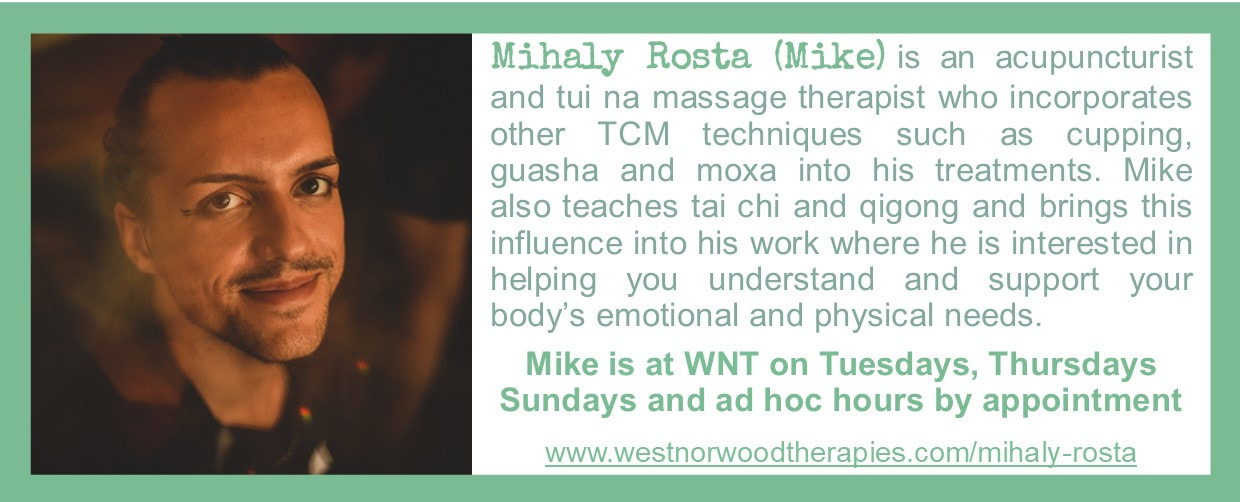
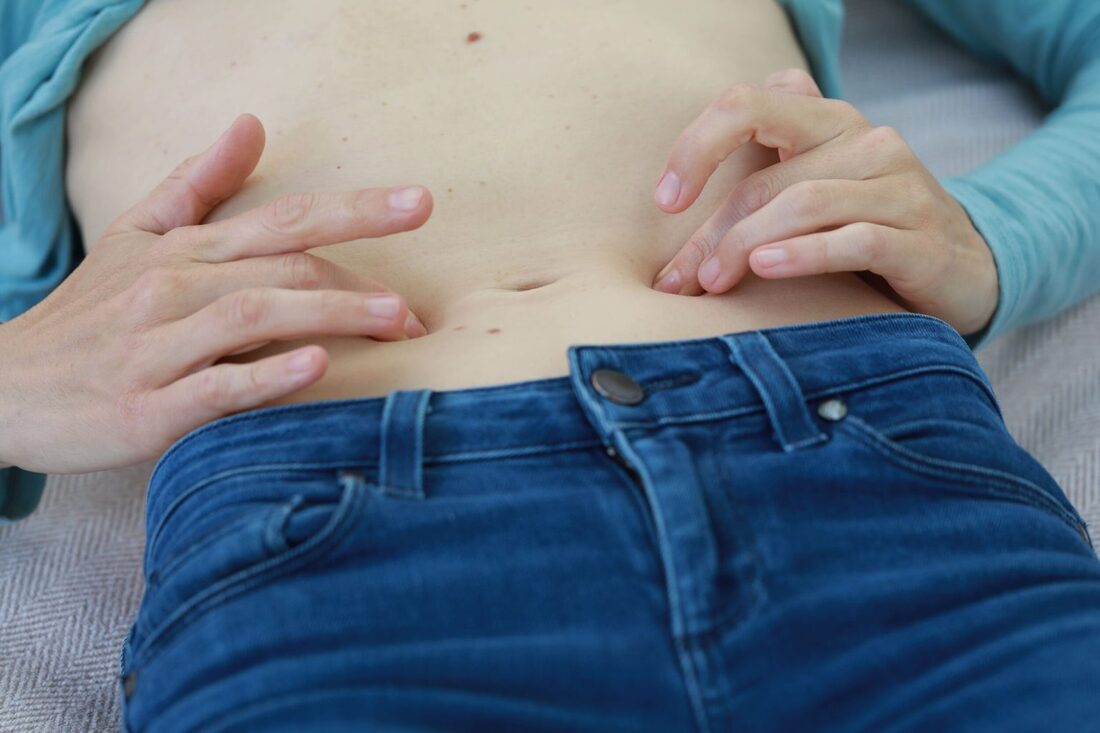
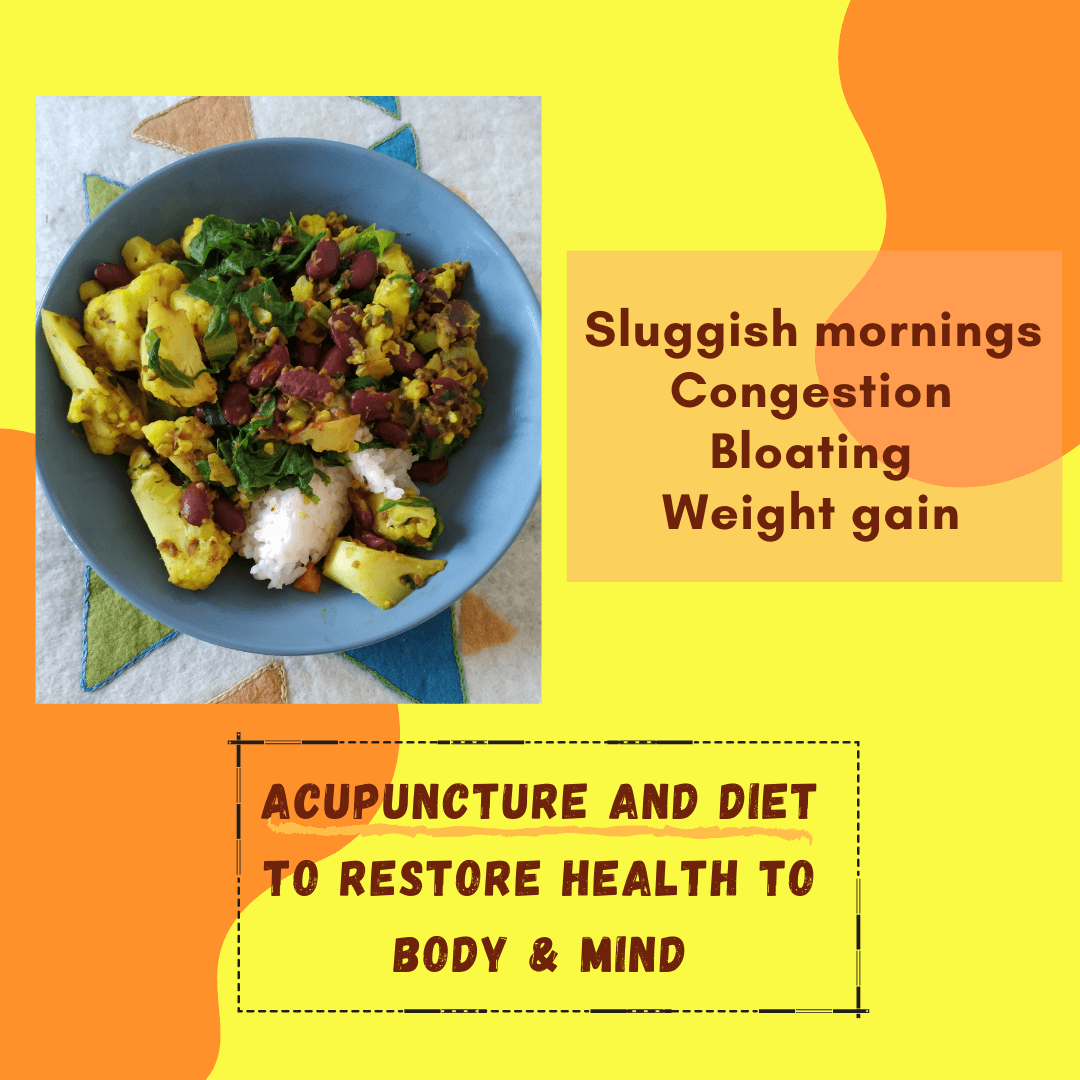
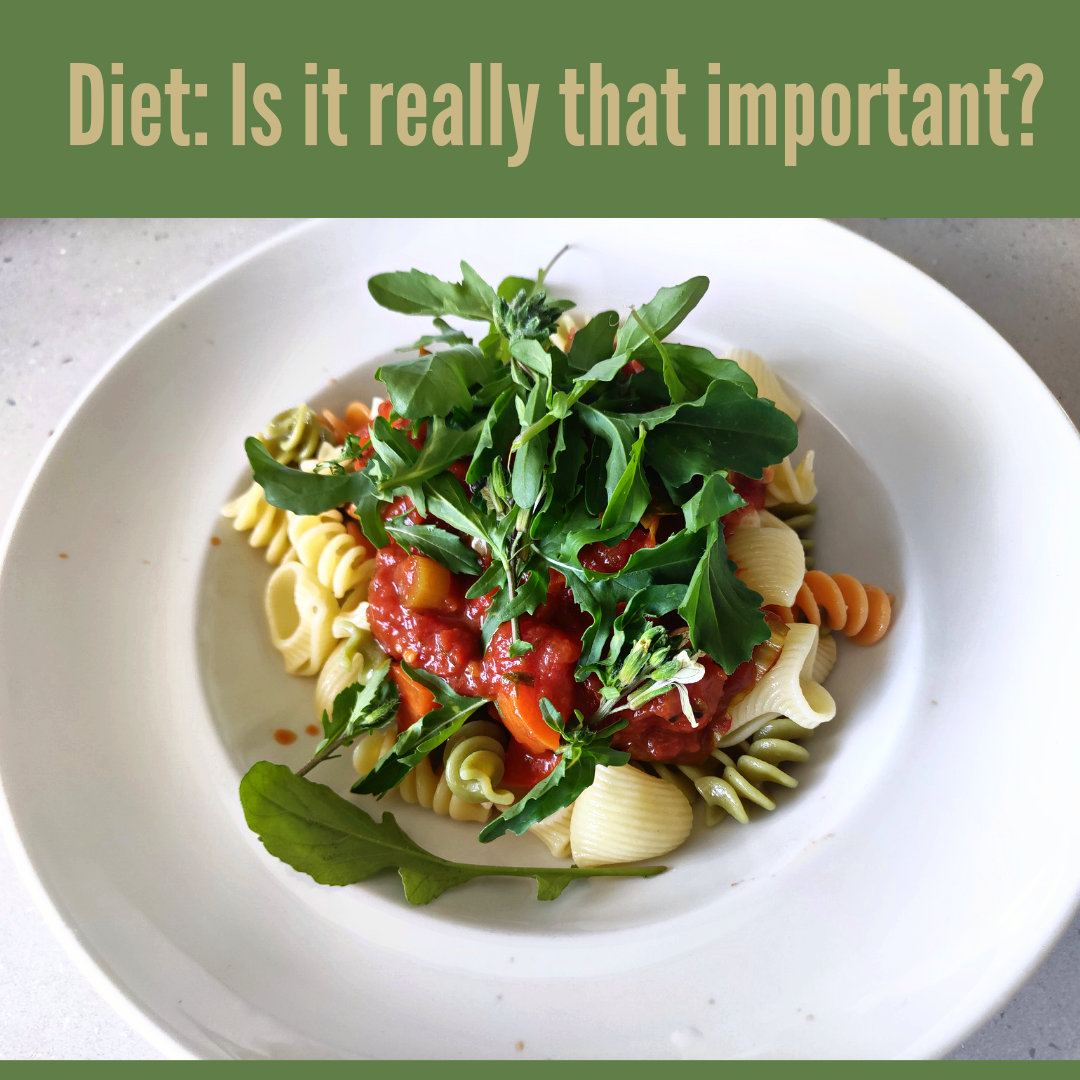
 RSS Feed
RSS Feed
